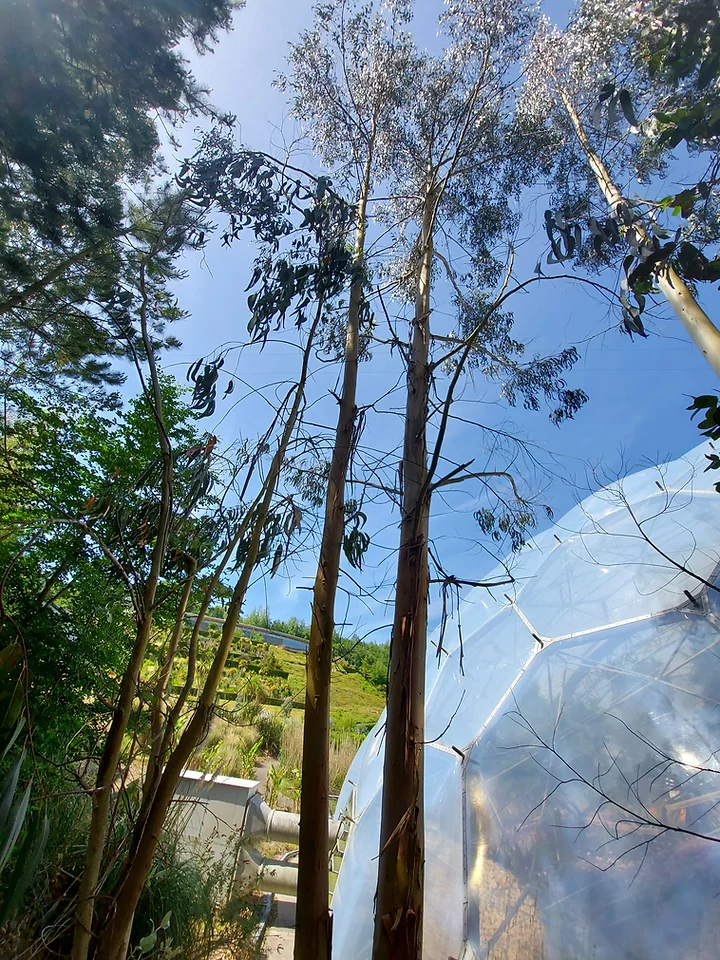
One of the most common allegations that we see levelled at eucalyptus is that they are all gigantic, and therefore ill suited to most gardens. This is largely a legacy of the iconic Eucalyptus gunnii – garden centre staple and scourge of the small garden. Gunnii is sold very frequently because it is hardy and easy to produce. The problem with gunnii is that it grows very quickly and very tall, around 20-35 meters depending on the growing environment. This has led to many eucalyptus owners planting it in their garden only to find that it grows too quickly to control. They then fell it, and from this experience assume that all eucalyptus are like this. As a bonus, these gunnii are also often grown in round-walled pots which means that they have a worrying tendency to fall over once they reach a decent height because their roots never properly recovered from being pot-bound (which is why air-pots are so important!).
Does this mean that all eucalyptus grow to be giants? Absolutely not! There are around 700 species of eucalyptus, and they can be found in myriad shapes and sizes. The very smallest species that we grow is called Eucalyptus vernicosa, and it will grow to 3-4 meters at most over many decades. You’ve got the dwarf snow-gums like gregsoniana (6m), Mount Bogong (5-8m) and yet others, including the wonderful kybeanensis (6m). Cultivars such as Baby Blue and French Blue grow to 3 or 4 meters, and our most popular small trees such as neglecta, parvula, Azura and Silverana will typically reach around 10 meters. You then have the medium trees of between 10 and 20 meters such as nicholii, stellulata, and archeri (think of the height of most birch trees), before getting into the bigger species like the aforementioned glaucescens, gunnii, regnans and johnstonii.
It is also important to remember that the height of a tree will vary based on individual genetics, provenance, and growing conditions. This is why we often say that it will reach a rough height range rather than specifying an exact height.
Eucalyptus are an often poorly understood genus, and this applies to both those growing and buying them! We aren’t going to name and shame, but we quite often see various species of eucalyptus for sale online with the wrong height listed. For example, Eucalyptus glaucescens is recorded on various sites as being around 10 meters in maturity, or around 25 meters. Eucalyptus glaucescens can actually reach 40-50 meters in full maturity after many years, almost 160ft! Rather taller than 10 meters, wouldn’t you agree? Being certain about the typical height of your new eucalyptus will help you choose the perfect species, not to mention choosing the right location for it.
Not at all. We have a Eucalyptus glaucescens in front of the office that we are growing as a lollipop of just over two meters tall. We have many flower farmer customers who grow the tallest and most vigorous species as pollarded shrubs (harvesting foliage from 20 meters up is only for the most daring farmers!). Provided that you are able to actively manage your trees there is no reason to avoid the taller species. Eucalyptus are tough, and respond well to pruning, pollarding, and coppicing.

As always, if you’re uncertain you can get in touch with us by email or phone. We’re happy to advise on a species that fits your requirements 🙂